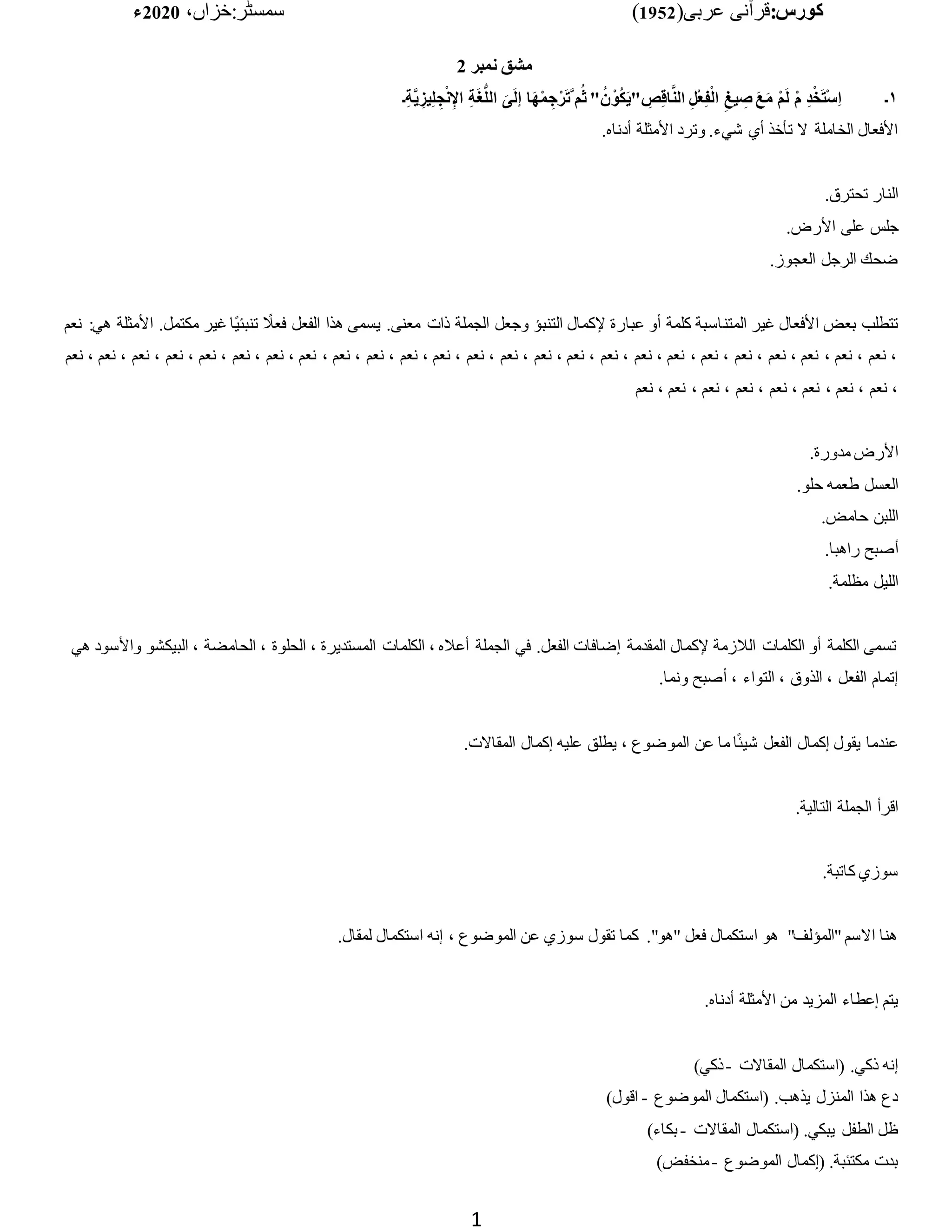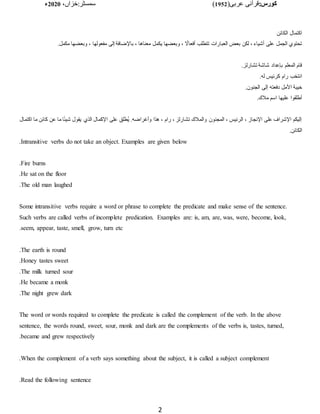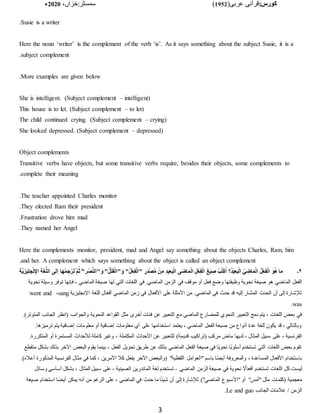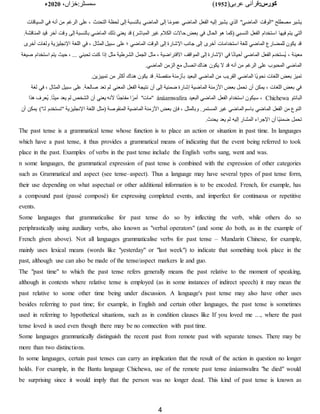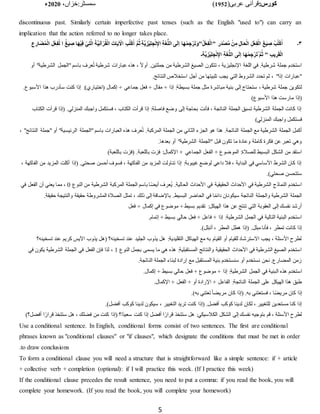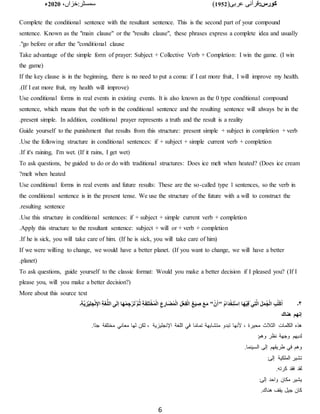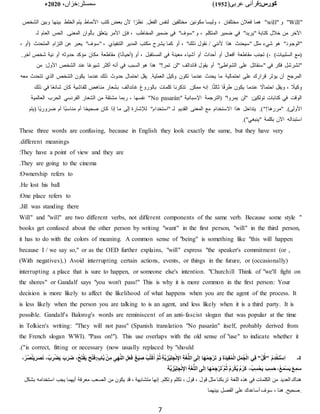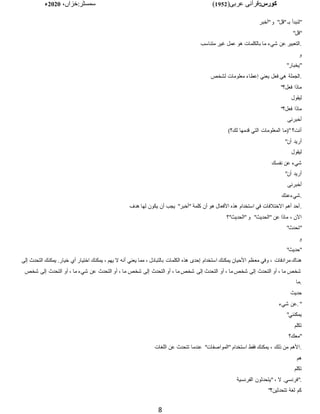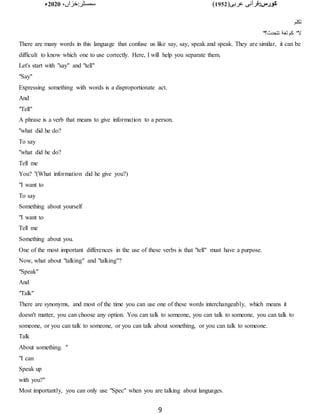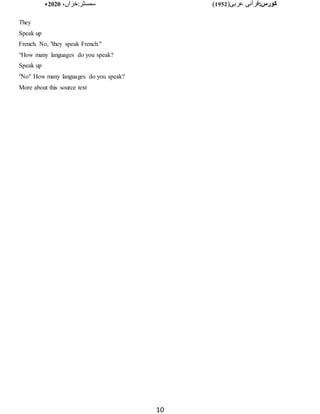This document discusses verbs and verb complements in Arabic grammar. It provides examples of intransitive verbs that do not take objects, like "burns" and "laughed". It also gives examples of verbs that require a complement to complete the predicate and make sense of the sentence, like "is round" and "tasted sweet". The word or phrase that completes the predicate is called the verb complement. If the complement provides information about the subject, it is a subject complement. If it provides information about the object, it is an object complement.
